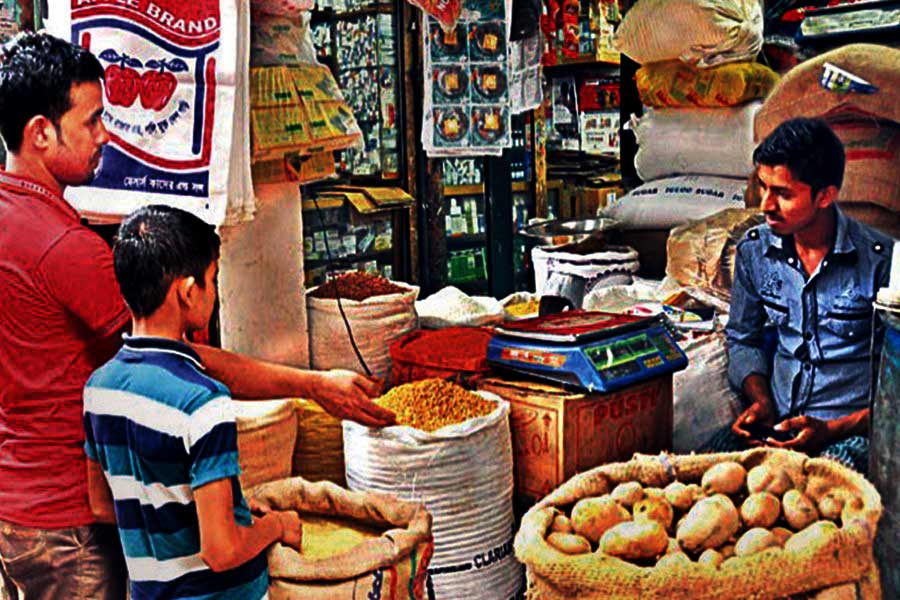
Published :
Updated :

Demonizing free markets by politicians and ideologues of the South has mostly been populist and not much else. It was not a thought through idea and they offered no better options in lieu that would suit the South more. Political ideology construction went by Western traditional thought which the West itself had rejected.
The states that were in the South were mostly indigenous informal states while the governments became an imposition from the top of sorts. These efforts to mix ideology with reality and refusal to back rational markets within the capacity of the state to regulate actually created opportunities for creating crony capitalist systems.
These economic management systems work in league with government agencies not due to some conspiracies but necessities. Supply chain weakness will always produce these equations. The focus was not on what works but the supposed expansion of the formal state represented by the government.
Meanwhile, the actual governance system never grew up nor became functional.
LIMITED GOVERNMENT CAPACITY
The "government is all" prescription was not done on the basis of any capacity survey of the state mechanisms but belief in the state as a savior, a near religious conviction. That the state's structure was weak was not discussed.
One of the better examples of this dysfunctional system is the rise of the "syndicate" which has now become so powerful that the official / formal tools of the economy are unable to regulate or dismantle them. They have become the principal supplier of goods to the consumers so actions against them will hurt the people. The helplessness is reflected in the recent words of a Bangladeshi cabinet minister who admitted, it isn't easy to end the syndicate.
FROM EGGS TO MIGRATION
Bangladesh media generally reports on daily consumer syndicates such as the eggs, morichs and edible oil etc but they exist in every sector. It's informal in nature but is linked to the formal sector without whose need, they couldn't continue. It is produced by the limited nature of the formal system and unlimited demands of the informal consumers. As Syndicates are more efficient than the formal official system, they are now entrenched and are here to stay for the foreseeable future.
But daily essentials are not the only goods that the Syndicate deals in. Their presence is noticed in other sectors as well from employment, public exams to external migration.
Migration to Malaysia is very important but remains weak in the formal sector. Although it bumps up occasionally, the fall is frequent too. The lack of a secure set of policies and actions has pushed it farther to the arms of informal migration led by various Syndicates.
The jobs-for-money Syndicate is well known and socially acceptable.
THE NATURE OF THE SYNDICATE
The social myth is that the Syndicate is a bunch of criminals ganging up to control the market putting profit over public suffering. They are seen as controlling the market including the quantum of import and entry into the supply chains. It's also assumed that governments can't stop it but don't do it as kickbacks are involved.
All the above are partly true. However, when the same phenomenon exists for over 50 years since 1971, one needs to ask if the Syndicate is a crony part of the formal state system or not. And how the Syndicates could control other non-economic goods supply also. Does the State benefit from the Syndicate's existence in every sphere?. Does the State depend on them?
CAN INFORMAL STATES AVOID SYNDICATES?
The Syndicate shares certain features of oligopoly but had this phenomenon been limited to economics, this comparison would be simple. However, the nature of the supply chain is such that market rules don't apply. Nor is the decision making scenario in other sectors including Syndicates in charge of politics and governance.
In other words, Bangladesh resembles a syndicate state. Its structure can't be explained using conventional formal models of socio-economic governance and management including market operations and regulations as they don't or can't live together with crony capitalism.
What Bangladesh basically has is a weak formal sector where the regulatory mechanisms can't ensure a marketplace of reasonable competition for all, be it prices or voting. However, the nature of the state history shows that the components required for a more effective formal governance mechanism is missing, largely making the rise of the Syndicates inevitable.
These Syndicates like many other informal institutions that operate within the formal system, transact with the formal and informal which ensures the sustenance of both, state and society. If the Syndicate ceases to exist, there are no agencies that can ensure supply of goods even at outlandish prices to the people. Given the nature of the formal construct, which is unable to perform well in the informal state, they may have become more vital for everyone including the consumer than all are ready to admit.
afsan.c@gmail.com


 For all latest news, follow The Financial Express Google News channel.
For all latest news, follow The Financial Express Google News channel.